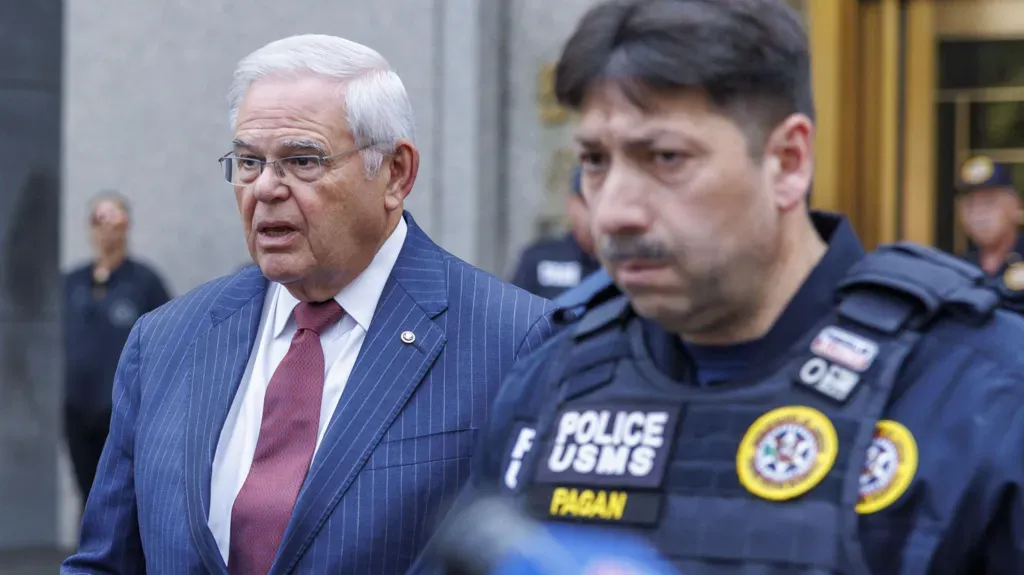In a dramatic turn of events, Senator Bob Menendez has announced his resignation from the US Senate following his conviction on bribery charges. The case has not only led to Menendez’s departure from the Senate but also sparked discussions about the broader implications for American politics and governance. This article provides a comprehensive examination of the case, detailing the investigation, the charges, and the political ramifications of Menendez’s conviction.
Bob Menendez: A Political Career Shattered
Bob Menendez, a prominent Democratic senator from New Jersey, has been a significant figure in American politics for decades. Elected to the House of Representatives in 1993 and later appointed to the Senate in 2006, Menendez has held various influential positions, including the chairmanship of the Senate Foreign Relations Committee. His career has now been marred by serious criminal charges, leading to his recent conviction and resignation.
The Conviction: Charges and Evidence
Menendez’s conviction on 16 counts of bribery has sent shockwaves through the political landscape. The charges allege that Menendez accepted bribes, including substantial amounts of cash and gold bars, in exchange for aiding foreign governments, specifically Qatar and Egypt.
Key Details of the Conviction:
- Bribery Charges: Menendez was found guilty of accepting bribes from individuals seeking his assistance in influencing US foreign policy to benefit Qatar and Egypt.
- Evidence Uncovered: During the investigation, FBI agents discovered over $480,000 in cash, hidden in envelopes and coats, along with gold bars valued at more than $100,000. The gold bars were presented as part of the trial evidence, further illustrating the extent of the alleged corruption.
- Sentencing: Menendez faces a lengthy prison term when he is sentenced on October 29. Despite maintaining his innocence, he has been convicted of these serious crimes, reflecting the gravity of the situation.
Menendez’s Reaction and Resignation
In the wake of his conviction, Menendez has announced his resignation from the Senate. This decision comes after significant pressure from various quarters, including Democratic Senate Majority Leader Chuck Schumer, and following the commencement of an ethics review by the Senate’s ethics committee.
Menendez’s Resignation Letter:
- Acknowledgment: In his resignation letter to New Jersey Governor Phil Murphy, Menendez expressed pride in his Senate accomplishments but acknowledged the need to step down to prevent distractions from the Senate’s important work.
- Legal Appeal: Menendez indicated his intention to appeal his conviction, although he emphasized that he did not want the Senate to be embroiled in a lengthy process that could detract from its legislative duties.
- Effective Date: The resignation is effective from August 20, and the notice was also read on the Senate floor, marking the end of Menendez’s tenure as a senator.
The Broader Context: Previous Legal Challenges and Political Impact
Menendez’s legal troubles are not a new development. His career has faced previous legal challenges, including bribery and conspiracy charges that ended in a mistrial in 2017. This latest trial, however, resulted in a guilty verdict, signaling a severe blow to his political career.
Previous Charges and Mistrials
In 2017, Menendez faced bribery and conspiracy charges, but the trial resulted in a mistrial. The case highlighted ongoing concerns about corruption and ethical conduct among public officials. This year’s trial, however, culminated in a conviction, underscoring the persistence of the legal issues surrounding Menendez.
Political Ramifications
Menendez’s resignation has significant political implications:
- Impact on the Senate: His departure from the Senate could influence the balance of power, particularly at a time when the Democratic Party is focused on maintaining its hold on both the Senate and the White House.
- Potential Re-election Bid: The New York Times reported that Menendez could theoretically run for re-election as an independent, potentially impacting the Democratic vote. This possibility adds another layer of complexity to the political landscape.
Related Legal Proceedings and Political Developments
The legal and political ramifications extend beyond Menendez’s case, involving other individuals and ongoing legal proceedings.
Involvement of Other Businessmen
Two businessmen, Wael Hana and Fred Daibes, are also facing trial on accusations related to seeking Menendez’s illegal aid for the Egyptian government and securing funds from a Qatari investment fund. They deny the charges, and their trial continues alongside Menendez’s legal battles.
Key Individuals:
- Wael Hana and Fred Daibes: Accused of seeking Menendez’s assistance for foreign governments, their trial is part of the broader investigation into the bribery case.
- Jose Uribe: A third businessman who pleaded guilty and provided evidence against Menendez, further complicating the case.
Menendez’s Wife: Legal and Health Issues
Menendez’s wife is also facing legal issues related to bribery and obstruction charges. However, her trial has been postponed indefinitely due to her recovery from breast cancer surgery, highlighting the personal and legal challenges facing the Menendez family.
Conclusion
The conviction of Senator Bob Menendez represents a significant moment in American political history, illustrating the serious consequences of corruption and bribery. His resignation from the Senate marks the end of a prominent political career, with far-reaching implications for the balance of power and future political dynamics.
As Menendez prepares for sentencing and continues to appeal his conviction, the case serves as a reminder of the importance of integrity and transparency in public service. The ongoing legal proceedings involving other individuals and the broader impact on political landscapes highlight the complex and often challenging nature of addressing corruption in politics.


